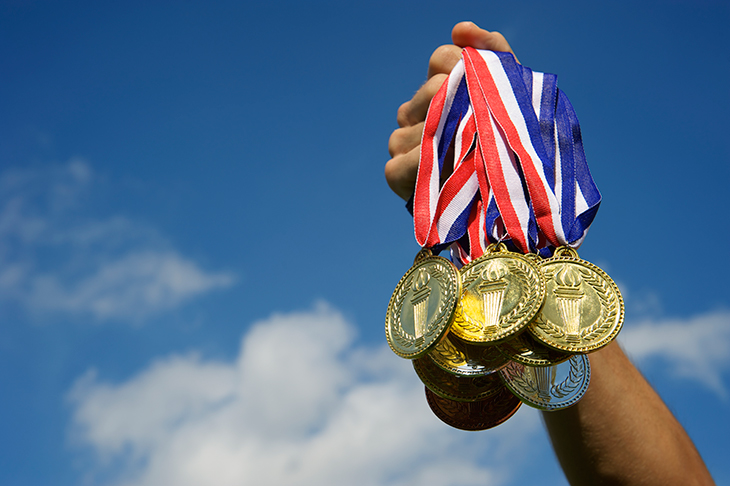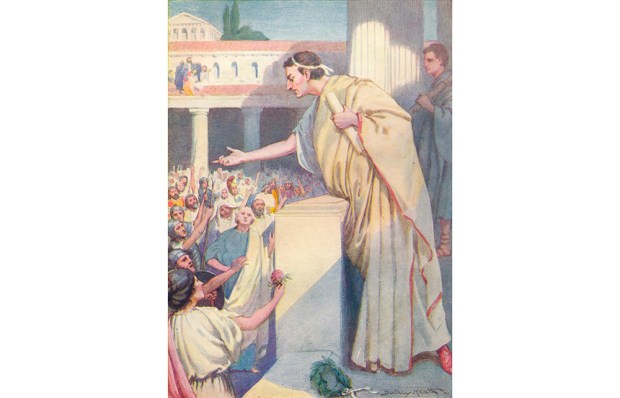The Olympic Committee has added surfing, skateboarding and break-dancing to the events for the Olympic Games in Tokyo in 2020. Heaven knows what ancient Greeks would have made of it.
The satirist Lucian (2nd century ad) invented a dialogue in which the Scythian philosopher Anacharsis argued with the famous Athenian statesman Solon (d. 558 bc) about the purpose of athletics. Anacharsis expressed amazement that in the gymnasium men covered in oil were writhing about in sand-filled pits and punching each other, and when Solon told him it was to win prizes at the Games — a wreath of wild olive, of parsley or of pine, or apples — Anacharsis said that proved they were barking: there were easier ways to get apples and olive wreaths. Was it not humiliating to be beaten up in public like that? As for the spectators, had they not better things to do than watch such inanities?
Wrong again, said Solon. It was all about winning god-like fame and the acclaim of thousands through sheer hard work, developing skill, strength, daring, competitiveness and determination to win. The young, said Solon, like seedlings, needed tender treatment at first, but then toughening up, since a city’s main defence was not walls and ramparts but men. The freedom of the city depended directly on such training in the gym: it fitted them for battle. Working naked in the heat of the day, they ran in deep sand, jumped ditches carrying heavy weights, and threw spears and discuses, developing muscles in shoulders, legs and arms. Thus hardened for competition, superbly fit and imbued with noble spirit and readiness for battle, these ‘guardians of our country and bulwarks of our freedom’ struck terror into enemies. So you fight covered in oil and sand, said Anacharsis, and your enemies run away terrified of getting a handful of sand in their mouths? Come off it.
The aim of ancient Games was to challenge individuals, not teams, to test essential capacities natural to everyone (mainly running, throwing, fighting and riding), without fancy kit, at the highest possible level. Anacharsis may well have preferred the modern commercialised version — a peaceful, if corrupt, enterprise in showing off for the sake of it. But then he was a barbarian…
Got something to add? Join the discussion and comment below.
Get 10 issues for just $10
Subscribe to The Spectator Australia today for the next 10 magazine issues, plus full online access, for just $10.
You might disagree with half of it, but you’ll enjoy reading all of it. Try your first month for free, then just $2 a week for the remainder of your first year.














Comments
Don't miss out
Join the conversation with other Spectator Australia readers. Subscribe to leave a comment.
SUBSCRIBEAlready a subscriber? Log in